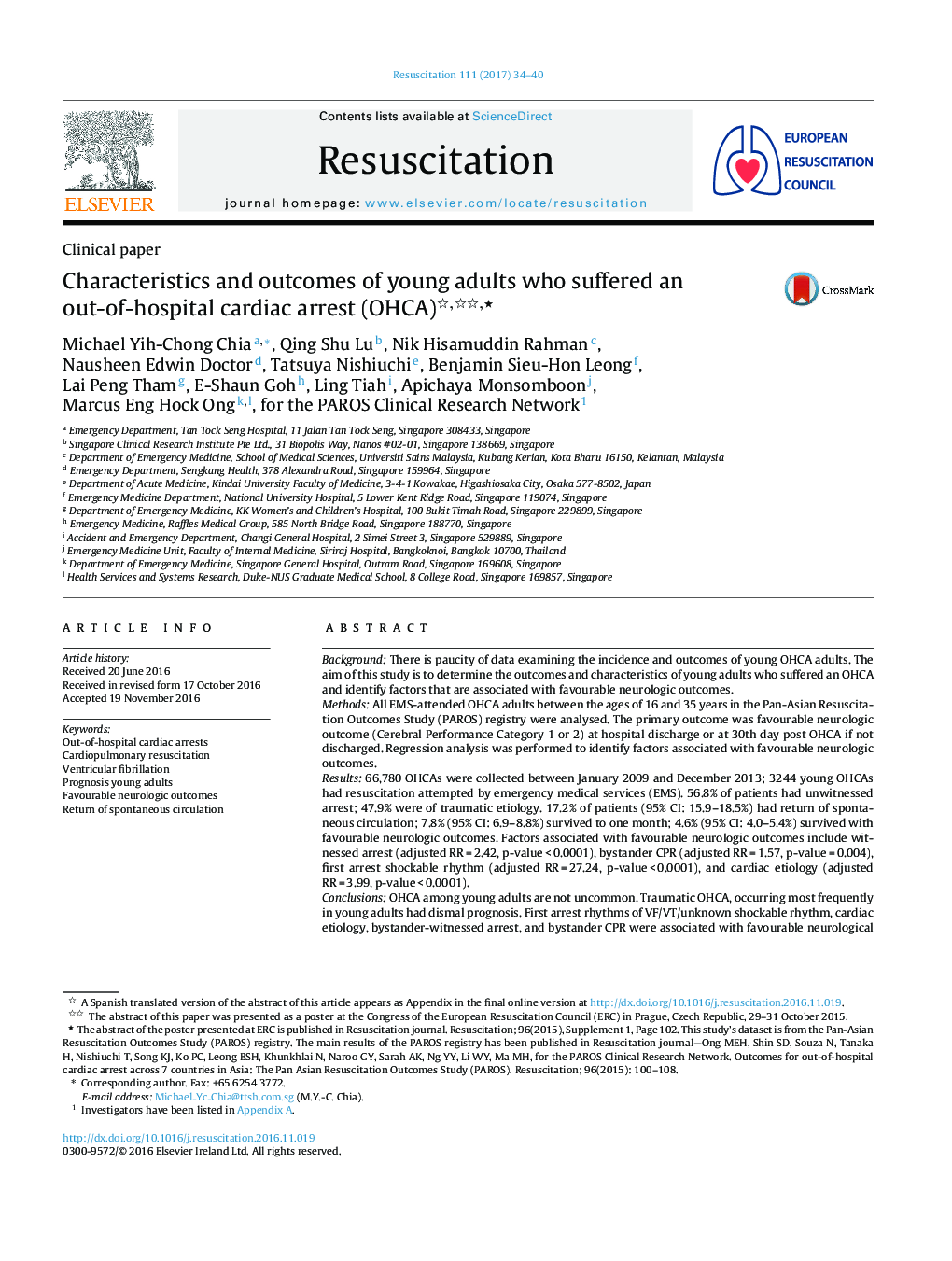| کد مقاله | کد نشریه | سال انتشار | مقاله انگلیسی | نسخه تمام متن |
|---|---|---|---|---|
| 5620210 | 1578973 | 2017 | 7 صفحه PDF | دانلود رایگان |

BackgroundThere is paucity of data examining the incidence and outcomes of young OHCA adults. The aim of this study is to determine the outcomes and characteristics of young adults who suffered an OHCA and identify factors that are associated with favourable neurologic outcomes.MethodsAll EMS-attended OHCA adults between the ages of 16 and 35 years in the Pan-Asian Resuscitation Outcomes Study (PAROS) registry were analysed. The primary outcome was favourable neurologic outcome (Cerebral Performance Category 1 or 2) at hospital discharge or at 30th day post OHCA if not discharged. Regression analysis was performed to identify factors associated with favourable neurologic outcomes.Results66,780 OHCAs were collected between January 2009 and December 2013; 3244 young OHCAs had resuscitation attempted by emergency medical services (EMS). 56.8% of patients had unwitnessed arrest; 47.9% were of traumatic etiology. 17.2% of patients (95% CI: 15.9-18.5%) had return of spontaneous circulation; 7.8% (95% CI: 6.9-8.8%) survived to one month; 4.6% (95% CI: 4.0-5.4%) survived with favourable neurologic outcomes. Factors associated with favourable neurologic outcomes include witnessed arrest (adjusted RR = 2.42, p-value < 0.0001), bystander CPR (adjusted RR = 1.57, p-value = 0.004), first arrest shockable rhythm (adjusted RR = 27.24, p-value < 0.0001), and cardiac etiology (adjusted RR = 3.99, p-value < 0.0001).ConclusionsOHCA among young adults are not uncommon. Traumatic OHCA, occurring most frequently in young adults had dismal prognosis. First arrest rhythms of VF/VT/unknown shockable rhythm, cardiac etiology, bystander-witnessed arrest, and bystander CPR were associated with favourable neurological outcomes. The results of the study would be useful for planning preventive and interventional strategies, improving EMS, and guiding future research.
Journal: Resuscitation - Volume 111, February 2017, Pages 34-40